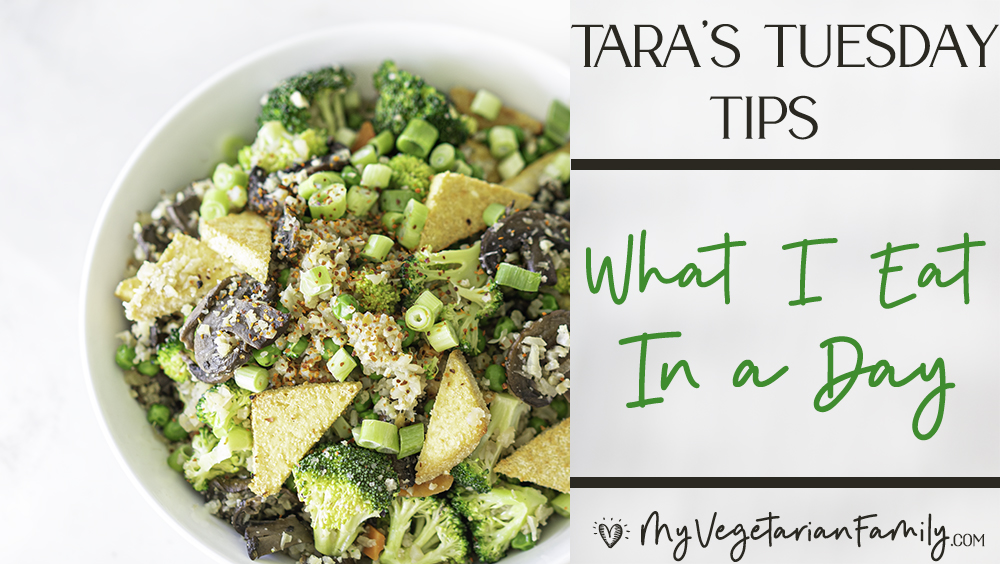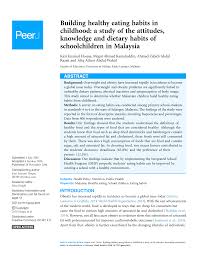
Urinary problems are one of many health issues that elderly people face. It can be embarrassing and frustrating to experience incontinence. It can also have a negative impact on the health and quality of life of elderly people. There are many ways to manage your incontinence at home. You may need to make minor adjustments and get support from an elder care provider.
It is important to note that incontinence can be a normal part of aging, but it does have a negative impact on the health of the elderly. If you are caring for an incontinent individual, it is important to maintain their dignity and respect. This is especially true if they have dementia.
There are many causes of urinary problems such as an overactive bladder, pre-existing bowel conditions, and prostate gland problems. First, identify the cause of the incontinence. A doctor's consultation is usually necessary in order to diagnose the problem. The doctor will perform the physical examination and inquire about your symptoms. The doctor will also ask questions about recent illnesses and surgeries. The doctor might recommend treatment if the incontinence is caused by an underlying condition. This could include losing weight or quitting smoking.

The doctor may request additional medical tests to examine the bladder. These tests will allow for a precise diagnosis of the reason for incontinence. The patient should also keep a daily diary of the symptoms and times of urination. This will allow the doctor to track the progress of the incontinence.
The caregiver should be able to place a portable commode in the patient's room if they are unable for the patient to access the bathroom. The person may not remember the location of the bathroom, and they may not be able to tell you when they need to use the toilet. Some dementia patients can be helped to remember to go to the bathroom. The best way to keep someone on track is to keep the door open, and look out for nonverbal cues.
It is important to explain the benefits of wearing pull-ups to anyone who is resistant to wearing them. A few samples of the product are also helpful to assist in choosing the right fit. Using pull-up underwear can also make the person more comfortable, which will help them continue wearing them.
Incontinence care plans can also include lifestyle changes like drinking more water and eating more vegetables. Caregivers should also avoid caffeine, sweeteners, and alcohol, as these may irritate the bladder. It is important to not keep the person waiting in the toilet after urinating for too long. Protective undergarments are a great idea for seniors to keep their dignity.

Aside from providing the senior with the proper care, a caregiver also needs to be patient and respectful. It is best to avoid scolding the patient when there are injuries. The caregivers should be alert for non-verbal cues to indicate the need to use the bathroom.
FAQ
Is being cold bad for your immune system?
It's been said that there are two kinds of people in the world; those who love winter and those who hate it. It doesn't matter if you love it or not, it is possible to wonder why it makes you feel so miserable when it gets cold outside.
Our bodies were designed to work best in warm climates. Our bodies were designed to thrive in hot weather because this is where the majority of our food sources are.
However, our environment is quite different than that of our ancestors. We spend a lot more time indoors, and are more likely to be exposed to extreme temperatures like heat and cold.
Our bodies don't have the ability to tolerate extreme conditions anymore. When we venture out, our bodies are unable to handle the extremes. This leaves us feeling exhausted, sluggish, or even sick.
There are many ways to avoid these side effects. One way is to make sure that you stay well-hydrated throughout the day. Drinking plenty of water will help you keep your body hydrated and flush out toxins.
It is important to eat healthy foods. The best way to maintain your body's optimal temperature is by eating nutritious food. This is especially true for those who spend extended periods of time indoors.
It is worth taking a few extra minutes each day to meditate. Meditation can relax your mind and body which can make it easier to deal stress and illness.
How do I get enough vitamins?
The majority of your daily nutritional needs can be met solely through diet. However, if you are deficient in any particular vitamin, taking supplements can help. A multivitamin supplement can provide all the vitamins you require. You can also get individual vitamins at your local drugstore.
Talk to your doctor to find out which foods are rich in vitamins. For example, dark green leafy vegetables such as spinach, broccoli, kale, collard greens, turnip greens, mustard greens, bok choy, romaine lettuce, arugula, and Swiss chard are rich in vitamins K and E. Other good sources include oranges, tomatoes, strawberries, cantaloupe, carrots, sweet potatoes, pumpkin, and squash.
Ask your doctor if you're not sure how many vitamins you should take. The doctor will determine the proper dosage based upon your medical history as well as your current health.
How often do I need to exercise?
It is important to exercise for a healthy lifestyle. However, there isn't a set amount of time you must spend working out. It is important to find something you enjoy, and then stick with it.
It is a good idea to exercise at least three times per week. Then, you should aim to do between 20 and 30 minutes of moderate-intensity activity. Moderate intensity will mean that you'll continue to be exerting yourself afterward. This type works out burns around 300 calories.
For those who prefer to walk, you can go for 10-minute walks four times a week. Walking is easy on the joints and has low impact.
Jogging three times a week for 15 mins is enough if you want to run. Running is a great exercise to build muscle tone and burn excess calories.
Begin slowly if your are new to exercising. You can start with only 5 minutes per week of cardio. Gradually increase the time you do cardio until your goal is reached.
What can you do to boost your immune system?
The human body consists of trillions of cells. These cells collaborate to form tissues and organs that perform specific functions. Another cell takes its place when a cell dies. Cells communicate with one another using chemical signals called hormonal hormones. Hormones regulate every bodily process, from growth and development to metabolism as well as immunity.
Hormones can be described as chemicals produced by glands in the body. They travel through the blood stream and act like messengers to control how our bodies function. Some hormones are produced internally while others are made outside of the body.
The hormone-producing glands release their contents into bloodstream. This is when hormone production starts. Once hormones are released, they move through the body to reach their target organ. Some hormones are only active for a brief time. Some hormones remain active for longer periods of time and can continue to have an impact on the body's function long after they are gone.
Some hormones can only be produced in large quantities. Others are produced in small amounts.
Some hormones are produced at certain times during life. The production of estrogen can occur during puberty and pregnancy, as well as menopause and old age. Estrogen helps women develop breasts, maintain bone density, and prevent osteoporosis. It also promotes hair growth and keeps skin smooth and soft.
Statistics
- In both adults and children, the intake of free sugars should be reduced to less than 10% of total energy intake. (who.int)
- nutrients.[17]X Research sourceWhole grains to try include: 100% whole wheat pasta and bread, brown rice, whole grain oats, farro, millet, quinoa, and barley. (wikihow.com)
- The Dietary Guidelines for Americans recommend keeping added sugar intake below 10% of your daily calorie intake, while the World Health Organization recommends slashing added sugars to 5% or less of your daily calories for optimal health (59Trusted (healthline.com)
- WHO recommends consuming less than 5% of total energy intake for additional health benefits. (who.int)
External Links
How To
Ten tips for a healthy lifestyle
How to keep a healthy lifestyle
We live in a fast-paced world that makes it difficult to get enough sleep, consume too much alcohol, smoke cigarettes, and eat too much. We don't take care of our body's health properly.
When you work full time and have to balance your exercise and diet regimens, it can be hard to create a healthy lifestyle. It becomes even harder if you are stressed out because your mind tells us that we cannot handle this situation anymore so we start feeling guilty and give up.
You should feel something is wrong with you body. Seek out a doctor to discuss your current health condition. If there's nothing abnormal, you might have stress from your job.
People believe they are lucky because they can go to the gym every day or have friends who keep them fit. They are fortunate. Those people don't have any problems. They have everything under control. I wish all people could do the same. Unfortunately, many people are not able to balance their work and personal lives. Many people have bad habits that lead to illnesses such as heart disease and diabetes.
These are some tips to help you improve your life.
-
Get enough sleep, minimum 7 hours, maximum 8 hours. It includes sleeping in the correct positions and avoiding caffeine before bed. Caffeine blocks the production of melatonin hormones and makes it harder to fall asleep. Make sure your bedroom is dark and clean. Make sure that you use blackout curtains especially if you are working late at night.
-
Good nutrition is key to a healthy lifestyle. Avoid sugary products, fried foods, white breads, and processed food. Fruits, vegetables, whole grains and whole grains are good options for lunch. A good snack option for afternoon is to include protein-rich snacks like nuts, seeds, beans and dairy products. Avoid junk food like chips, candy bars, cakes, sodas, and cookies.
-
Get plenty of water. Most people don't drink enough. Water helps us burn more calories and maintains our skin's youthfulness. It also flushes toxins out of our bodies and improves our digestion. Aim to drink six glasses of fluids daily to lose weight more quickly. You can check the color in your urine to see how well you are hydrating. Dehydrated means yellow; slightly dehydrated means orange; normal means pink; overhydrated means red; clear means highly-overhydrated.
-
Exercise – Regular physical activity is proven to improve energy levels, reduce depression, and even help you feel happier. Walking can be a great way to improve your mood. Even though walking looks simple, it requires effort and concentration. Your brain needs to focus on walking while breathing slowly and deeply. A 30 minute walk at a moderate pace for about 100 calories can burn between 100-150 calories. Start slow and work your way up. To prevent injury, don't forget to stretch after you exercise.
-
Positive thinking is vital for mental health. Positive thinking can create a happy atmosphere within us. Negative thoughts cause anxiety and drain our energy. You can stay motivated by thinking about what you want to accomplish. You can break down all the tasks into smaller pieces if you feel overwhelmed. Be aware that you will fail at times, but don't despair. Just get back up and start over.
-
You must learn to say No - Too often we get so busy we forget how much time is wasted on things that are not important. It is important for you to know when to say no. Being polite when you say "no" does not mean that you are rude. Simply saying "No" does not mean you are rude. You can always find a way to finish the task later. Try to set boundaries. Ask for help. You can also delegate this task to another person.
-
Take care of your body - Keep track of your diet. Healthy eating habits will increase your metabolism and help you lose weight. Avoid eating anything heavy or oily as they can raise cholesterol levels. A good tip is to have three meals and two snacks daily. Aim to consume 2000-2500 calories each day.
-
Meditation is a great stress relief and can help reduce anxiety. Sitting still with closed eyes allows your mind to relax. This exercise will allow you to have clarity of thought which can be very useful in making decisions. Regular meditation practice will help you be calmer, happier, and more peaceful.
-
Do not skip breakfast. Breakfast is the most important meal of each day. Skipping breakfast can lead to eating too much lunch. You don't have to wait until noon to enjoy a healthy breakfast. A healthy breakfast can boost your energy levels and help you control your hunger.
-
Eat clean food - Food affects our moods more than we know. Avoid junk food and other food items that have artificial or preservative ingredients. These products can make you feel hungry and acidic. A variety of fruits and vegetables is rich in vitamins, minerals and other nutrients that can help improve overall health.
-
***